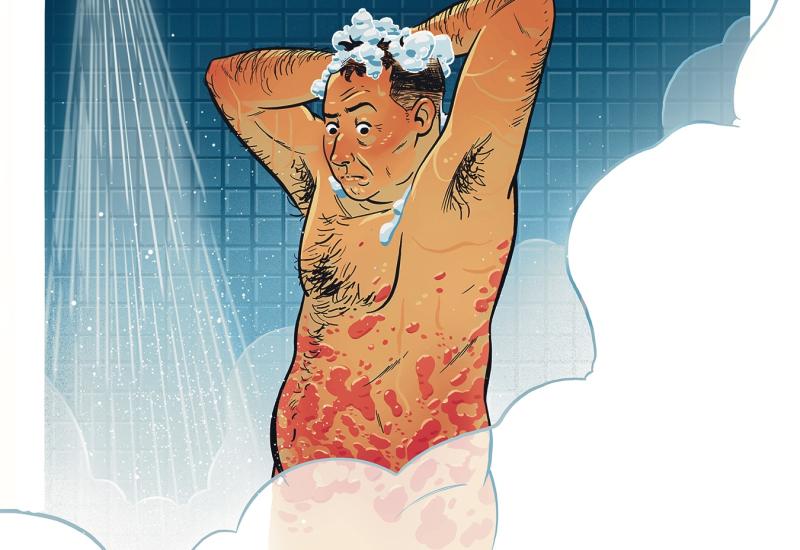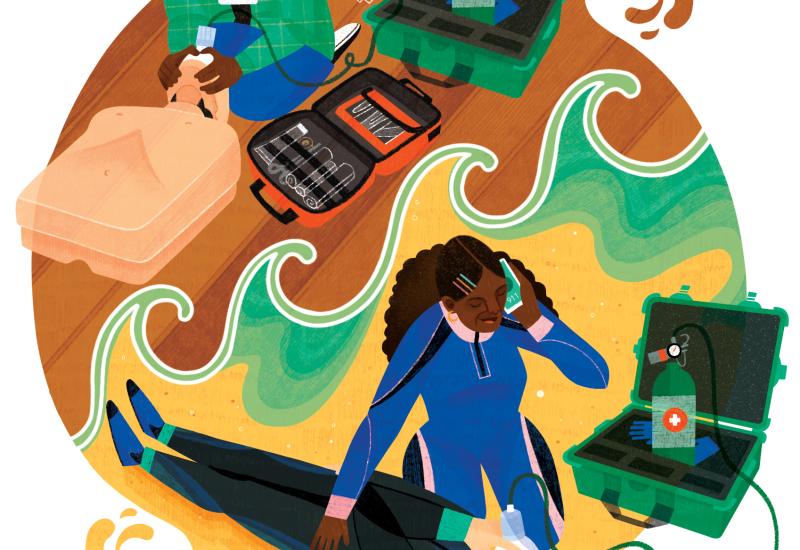Diving Doc: Antidepressants and Diving

Today's SSRI (selective serotonin reuptake inhibitor) antidepressants are a godsend for the nearly 20 million people in the U.S. who will suffer a bout of depression during any given year. For many divers, antidepressants like fluoxetine (Prozac), paroxetine (Paxil) and sertraline (Zoloft) mean not having to abandon diving (not to mention other important activities in their lives) to deal with repeated bouts of depression.
These drugs, however, are not without side effects. They can cause sleepiness, anxiety or restlessness, especially during the first few weeks of taking them, all of which can interfere with your ability to dive safely. So it's important to work with your doctor to find a medication and dosage that works for you and to feel stable on it before you resume diving. As a rule of thumb, you should not dive for the first several weeks after starting any antidepressant or after changing the dosage of your current medication.
Researchers have found that divers have reported taking a wide variety of pills, some within two hours of a dive, including antidepressants. Is it safe to take antidepressant medications prior to diving? More than one in 15 Americans take an antidepressant medication for one reason or another, and the prevalence of depression in active divers does not significantly differ from that found in the general population. During a typical calendar year, DAN Medical Services receives more than 125 inquiries regarding diving with depression and about an equal number specifically concerning the drugs used to treat it.
In a nutshell, depression is a disorder of mood. Sufferers complain of or are described by others as being down, blue, sad or empty, and as having reduced interest in or capacity to enjoy activities they once found pleasurable. Other features include disturbed sleep, changes in appetite and weight, feelings of worthlessness, hopelessness and guilt, thoughts of suicide, lack of energy, easy fatigue, restlessness, irritability, and difficulty in paying attention, concentrating and making decisions.
Commonly prescribed antidepressants include three major classes: selective serotonin reuptake inhibitors (SSRIs) (e.g., Celexa, Paxil, Prozac), monoamine oxidase inhibitors (MAOIs) (e.g., Nardil, Parnate), tricyclics/tetracyclics/heterocyclics (TCAs/HCAs) (e.g., Elavil, Remeron), and a few uniquely acting compounds (e.g., Effexor, Wellbutrin).
Although the risk generally is very low, perhaps most worrisome is that the majority of medications prescribed for the condition have been shown to be associated with seizures, most particularly the SSRIs at high doses. A second disturbing effect is drowsiness and reduced alertness, an adverse reaction known to occur with a large number of antidepressants. Such drugs can lead to decreased vigilance and hinder higher cognitive functions such as the ability to master complex spatial tasks and to recall information learned a short while earlier.
Obviously, these medications impact on brain chemistry at ambient atmospheric pressure. Therefore, it is not unreasonable to suspect the possibly that their effects could be potentiated by increased partial pressures of nitrogen or additive with those of nitrogen narcosis.
Side effects of some antidepressants can mimic DCI. Adverse reactions involving the central nervous system include headache, weakness and fatigue, dizziness, incoordination, abnormalities of vision, and numbness and tingling of the extremities, all of which also can be features of DCS.
Many persons who take these drugs tolerate them well, and what side effects they do experience pass with time. Moreover, altering the type of drug, dose size, the times at which doses are taken, and other steps sometimes can manage persistent side effects. Still, these are medications and they will have enduring, problematic side effects in some persons. As such, each individual must carefully monitor how s/he responds to a prescription over time before engaging in activities for which side effects could pose a risk.
As anyone who has suffered through it knows, depression can profoundly affect your entire being. People with depression often have difficulty sleeping, fatigue, poor appetite, restlessness, and difficulty concentrating or making decisions as well as hopelessness, sadness and irritability. Obviously, none of those symptoms goes well with diving, a sport that demands focus, attention to detail and awareness of your surroundings. So even if diving may help you feel better, you should take an honest, careful inventory of your current state of mental health before you dive in. Before diving, the diver taking an antidepressant will want to ensure that: (a) mental status examination demonstrates the condition to be well controlled; (b) the diver on medication has been on for an extended period and side effects dangerous to scuba are neither reported nor observed upon careful examination; (c) there are no other contraindications to scuba in the clinical picture; and, (d) the diver feels s/he is up to it and fully comprehends the remaining risks. In addition to obtaining written medical clearance to dive while on treatment, the diver will want to be honest on any medical release forms required by a training agency/dive op, inform his dive buddy(s), and dive conservative profiles.
_DocVikingo has been scuba certified for more than 35 years and has dived all over the world. He is a practising doctor in the Baltimore/Washington, D.C., area and has held faculty positions at several major hospitals, including Johns Hopkins. With an interest in diving medicine, he serves as administrator at Scuba Clinic Online. _










